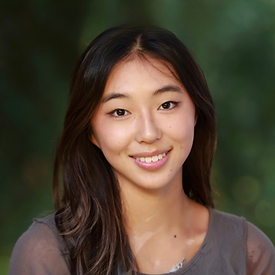
Rice Institute for Biomedical Research
Department of Molecular Biosciences
Northwestern University

Lab News
Congratulations to Laura Bott on her award from the KDA Board for her project "Mechanisms of Proteostasis Network Vulnerability in Kennedy's Disease." We look forward to your results, Laura!

In September 2025, Rick co-organized the ProteostaSys: a systems view of proteostasis meeting with Dr. Ritwick Sawarkar, Prof. Lea Sistonen, and Prof. Anat Ben-Zvi. The conference was held at the University of Cambridge and attended by several Morimoto Lab alumni. Select pictures of a delightful time being had by all can be viewed here.

When one Roy leaves, another arrives! Roy Magnuson was visiting for his 50th reunion from Northwestern and stopped by the Morimoto lab to say hello. Roy is a Professor at the University of Alabama and did his undergraduate research with Rick from 1984-1985.

Continuing our theme of seasonal transition, Roy Kurtzbard has said farewell, but not goodbye to Morimoto lab. Here is Roy on his inauguration day at the University of Cambridge where he is pursuing his joint PhD between Cambridge and Northwestern. Congratulations, Roy!
Roy will continue to work with the Morimoto Lab remotely and will be joining us for in-person meetings and team retreats for the duration of his program.

With the summer at an end, Tobias Renner also had to bid auf wiedersehen to the Morimoto lab and return to his studies in Germany. We will miss you and your delicious baked goods, Toby!

The summer has flown by so quickly! It feels like the lab just welcomed Maeve McAuley and now it's already time to say goodbye. We have loved working with you, Maeve and Rick was delighted to see our undergrad lab members working on projects together.
_heic.png)
The Morimoto Lab ventured outside for a few minutes to capture the annual lab photo between rainstorms this August.
Pictured from left to right are front row:
Thomas Stoeger, Xiaojing Sui, Erin Aprison, Zainab Zaidi, Rick Morimoto, Rebecca Phend, Maeve McAuley, Allison Kim.
Back row: Sue Fox, Anan Yu, Renée Brielmann, Roy Kurtzbard, Alejandro Rodriguez Gama, Laura Bott, Pedro Soares, and Tobias Renner.

The Morimoto Lab has welcomed undergraduate researcher, Maeve McAuley. Maeve, a Global Health major, is focused on the development of genetically-encoded biosensors for monitoring organellar proteostasis in the model organism C. elegans.
Welcome, Maeve!

The Morimoto Lab has welcomed visiting pre-doctoral fellow from Hochshule für Angewandte Wissenschaften in Hamburg, Germany, Tobias Renner. Tobias is working with Laura Bott to focus on the influence of select chaperone genes, identified in a previous genetic RNAi screen, on a proteostasis biosensor. He will investigate both in-vitro and in-vivo in the model organism C. elegans.
Willkommen, Tobias!

The Morimoto lab wishes a fond farewell to Dr. Parul Mishra, Visiting Professor from the University of Hyderabad who has brightened our halls for the past year.
Parul received the highly competitive Long Term ICMR-DHR International Fellowship for Young Biomedical Scientist 2023-24 from the Indian Medical Research Council to work with our lab members to develop and realize new tools and approaches to enhance proteostasis to prevent protein misfolding and aggregation in neurodegenerative diseases.
We look forward to continued collaboration with Dr. Mishra.

Prof. Rick Morimoto strikes a pose with Prof. Stephanie Watowich (former Morimoto Lab Ph.D. student) and Stephanie's current Ph.D. student, Sarah Schneider, at the MD Anderson Cancer Institute in April 2025. Rick was in Texas to present a Science to Medicine seminar.

The Morimoto lab hosted the 30th Anniversary Midwest Stress Response and Molecule Chaperone Meeting on Saturday, January 18th in the Pancoe Abbott Auditorium on Northwestern's Evanston campus. The meeting was attended by 160 faculty, researchers, postdocs, graduate students, etc from all over the midwest, the south, and even a few people joining from Canada. Photos from the event will be posted here.

The Morimoto lab wishes everyone a joyous holiday season and a happy new year in 2025! The lab celebrated the end of 2024 with a dinner and gift exchange. Allison Kim may have set a record for the number of times her chosen gift was stolen and Rick lost both his wacky waving arm guy and jug of peanut M&Ms to mischievous lab elves. Pictures of the shenanigans can be found here.


Welcome to the Morimoto Lab
We study the regulation of the heat shock response and the function of molecular chaperones and the proteostasis network to maintain the functional health of the proteome, to ensure optimal cellular health and to promote longevity. Our current interests are: to understand how different tissues in C. elegans sense diverse forms of environmental and physiological stress and communicate proteotoxic stress signals between tissues to determine organismal health, to determine the mechanisms by which proteostasis collapse occurs in aging and the relationship between proteostasis failure and other markers of aging. These observations are used to study cell stress responses and proteostasis in patient-derived direct differentiated neurons to develop small molecule strategies to restore the proteostasis network to delay or prevent proteome mismanagement that occurs in Alzheimer’s disease, Parkinson’s disease, Huntington’s disease, ALS and other protein folding disorders.

C. elegans viewed through the microscope at the Morimoto Lab



C. elegans viewed through the microscope at the Morimoto Lab
The Proteostasis Network
Protein Quality Control (PQC) is regulated by the Proteostasis Network (PN) that controls protein synthesis, folding, transport and degradation of all proteins to ensure their stability and function. We study the properties and regulation of cell stress responses, molecular chaperones, the ubiquitin-proteasome and autophagy-lysosome system at the organismal level using C. elegans and in patient derived induced neurons to examine the mechanisms of proteotoxicity in cells and tissues against proteotoxic damage.
Aging Biology
Aging is associated with the appearance and accumulation of non-native proteins with folded states that are highly aggregation-prone and amyloidogenic. We are interested in the molecular basis of quality control failure in aging, that we have termed Proteostasis Collapse, which is associated with a functional decline in specific arms of the PN leading to protein aggregation.
Proteostasis in Neurodegenerative Diseases
Alzheimer's disease, ALS, Parkinson's disease, Huntington's disease, Frontal Temporal Dementia and other neurodegenerative diseases are all associated with age-dependent protein aggregation and cellular dysfunction. We have used both C. elegans and induced neurons to discover how protein misfolding and aggregates interferes with cellular function and to discover small molecules that enhance chaperone expression and function.
The Heat Shock Response
All cells (and organisms) respond to environmental stress such as elevated temperatures and other abiotic stressors by activation of HSF1 and selective transcriptional activation of molecular chaperones and other components of the PN. In isolated cells in tissue culture, the heat shock response (HSR) is regulated cell autonomously but in C. elegans, the HSR is regulated cell non-autonomously by the AFD sensory neuron to confer cellular healthspan and lifespan.
The Proteostasis Consortium
Northwestern’s Richard Morimoto leads a team of scientists including Ana Maria Cuervo at Albert Einstein College of Medicine, Judith Frydman at Stanford University, Dan Finley at Harvard Medical School, Steve Finkbeiner at the Gladstone Institutes at University of California San Francisco, Jason Gestwicki at University of California San Francisco, and Jeff Kelly and Evan Powers at The Scripps Research Institute. Together, our research teams form the Proteostasis Consortium, studying the role of protein quality control in human aging and neurodegenerative diseases such as Alzheimer’s disease.
Additional information on our research and the Proteostasis Consortium Wednesday Seminars be found at https://www.proteostasisconsortium.com/.